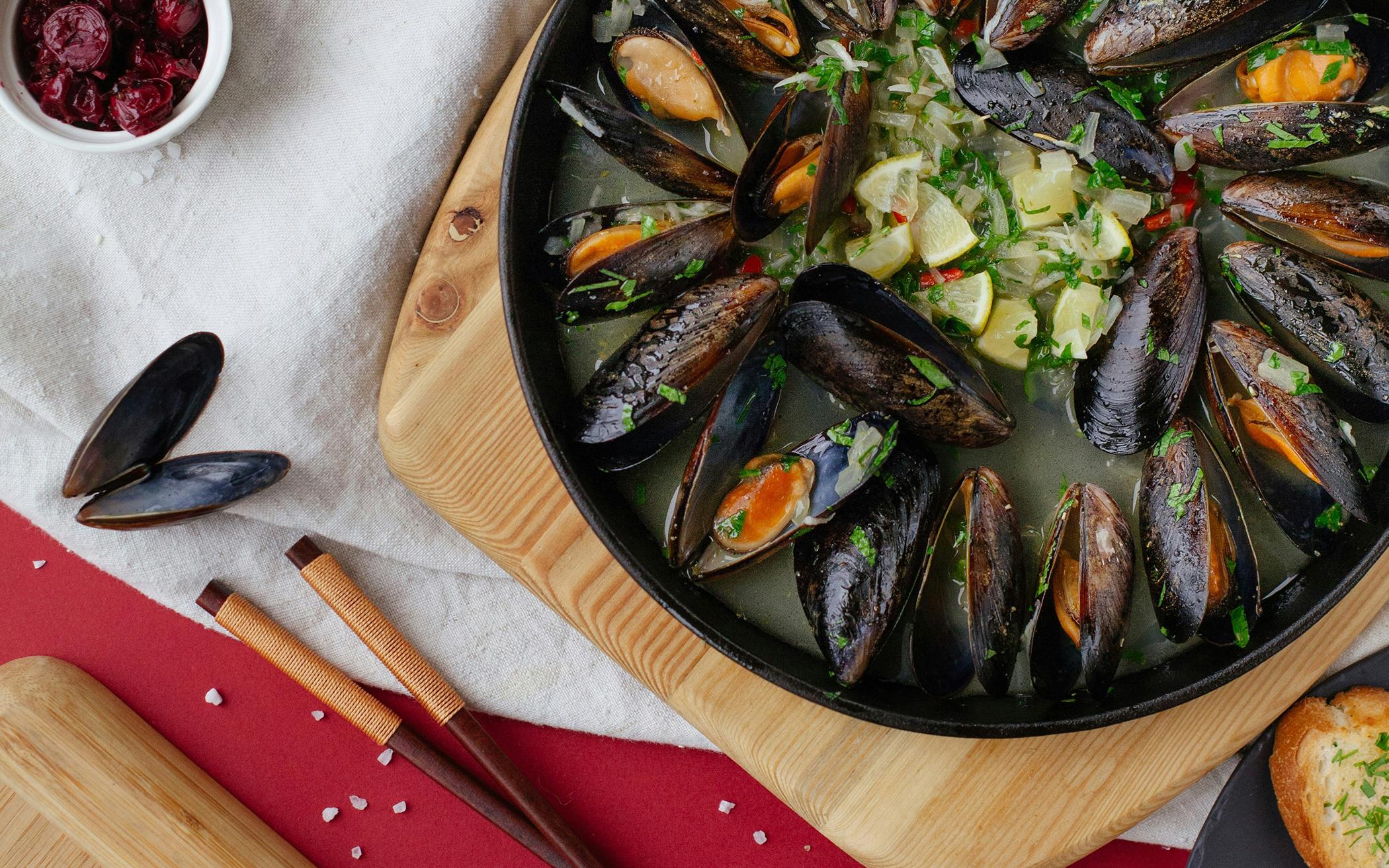One of my favorite memories of seminary is a meal I ate.
I interned at an organization for recovering addicts, the same place where a local church ran a Wednesday Euchre group. Every year at Christmastime someone from that church invited the whole group to eat at his home. In 2013, as a new and subpar Euchre player, I was invited to eat that meal.
We all arrived at a fully decorated house. The tree was trimmed, and tables complete with napkins and buns in baskets graced the whole main floor. It was a Christmas meal with everything you can imagine, but the main attraction was the mussels. Dozens of mussels prepared in a special sauce greeted us as we took our seats. It’s a shame I don’t like mussels, but the sauce was great.
For those who lived at the recovery center, these elaborate meals were uncommon, but at that particular meal they feasted in the company of friends where they were simply guests. They were not recovering addicts. They were not residents of this organization. They were just welcomed. This meal told them that the love, friendship, and acceptance they tasted throughout the year was genuine—not just on Euchre Wednesdays and not just on Sundays at church, but at Christmas, a time often reserved for our closest family and friends.
Jesus hosted a similar feast at Passover. At that meal Jesus showed us that there is a table—or rather, an abundant life with God—that is prepared for God’s people to enjoy. A table of feasting and nourishment awaits us as we surrender to the host of the meal in three ways.
Acceptance
God is the creator and sustainer of all things. Our lives, our schedules, and every table we eat at submit to and praise God, who gives us every good thing. And because we are not just guests, but children of God, we know God hosts and holds our lives all together. Accepting this means trusting that our seat at God’s table is genuine and secure. We see this in Matthew’s gospel when Jesus reclines to eat with all 12 disciples.
Matthew’s account is specific in naming the 12 twice—first when one of them went to the chief priests to betray Jesus, and later when Jesus reclined in the presence of all 12.
It would make sense to see that number change—Jesus reclining with 11, not 12. Yet 12 are present at the table Jesus has prepared: Judas, Peter, and all the disciples who abandoned him at the cross.
At the recovery center we often talked about similar themes, because we tend to set tables differently than Jesus does. When there is hurt or disagreement, we revise the invitations, and sometimes the invitations are changed on us.
But part of acceptance is trusting that when it comes to God’s table, the invitations are up to God alone. God sets the table and then calls our names, fills us with faith, and gives us life to the full—not because we have earned our seats, but because God is the most gracious host, and God chooses for us to be there. Jesus said in John 15:16, “You did not choose me, but I chose you and appointed you so that you might go and bear fruit—fruit that will last.” We tend to invite people based on our shared past, but Christ’s invitations are for the future. We are fruit bearers.
Even when our meal is messy, we must trust God’s invitation. We must pull our seat close to the table and put our napkin on our lap so that we catch every piece of food God offers.
Honesty
We do not know what Judas was thinking during that Passover meal. Perhaps he is thinking nothing of his betrayal, because he was clearly surprised that Jesus knew or that Jesus mentioned it. “Surely you don’t mean me, Lord,” Judas said to Jesus.
But because our Lord Jesus Christ is honest, in every account of this meal Jesus addresses the betrayal. There does not seem to be a table where Jesus does not include the truth.
The host who sets, prepares, and invites us to the table has the power to offer honesty that affects how we experience our meal.
Judas’ initial desire to betray Jesus was a very human problem. We have all turned away from Christ. The greater problem for Judas was his inability to come before Christ, the one who already knew all things, and say, “It was I.”
Being honest with ourselves is good, but honestly, it is never enough. We need the host of our lives to be honest with us, because Christ’s honesty is still an opportunity. In John’s account of this meal, Jesus offers Judas the sop, a small offering of bread commonly given to a special guest at the Passover meal to signify love, goodwill, and even special favor, according to F.F. Bruce’s The Gospel of John. Jesus offers the sop to Judas and in doing so takes Judas to the place where Christ’s honesty always takes us: his grace. The sop meant mercy and a chance to repent. If Judas had exchanged with Christ a single look of sorrow and regret, would that not have been a wonderful change in the direction Judas was heading?
Yet just one chapter later, in front of the crowd with swords and clubs, Judas approaches Jesus and gives him a kiss of betrayal—a sorrowful ending to the meal Judas ate.
Christ’s honesty nourishes us because even though we come to God’s table full of guilt and shame, Jesus promises in John 6 that “whoever comes to me will never go hungry.”
Forgiveness
At God’s table, Christ is the centerpiece. When we come to the table and lift up our eyes to Jesus, who holds our life with God altogether, we know why we are there. It’s not because we are good guests. It’s because we are forgiven.
Meals have a way of telling us where we stand, and at God’s table we sit, eat, and stand forgiven.
Matthew 26:26-27 say, “While they were eating, Jesus took bread, and when he had given thanks, he broke it and gave it to his disciples, saying ‘Take and eat; this is my body.’ Then he took a cup, and when he had given thanks, he gave it to them, saying, ‘Drink from it, all of you.’”
All of you? Drink from it, Judas? Drink from it, Peter? Drink from it, all of you who will desert me and flee?
Drink from it, all of you, says Jesus. “This is my blood of the covenant, which is poured out for many for the forgiveness of sins.”
This is the heart of the table—not what we bring to the meal, but all that God offers in Christ to those who believe.
So though you sit at the table that has been prepared for you, and though some might whisper “You shouldn’t be sitting here,” take heart and remember that you are at God’s table. Bring your eyes up from your shame and fear, behold Christ seated at the middle of the table offering himself who is real food and real drink, and then turn to your host and say the only thing that any forgiven guest can say: Thank you, God, for inviting me to eat.
About the Author
Courtney Saldivar lives in Milton, Ont., with her husband and two children. She is a pastor at Crosstowne Church in Milton and also serves as a chaplain with Marketplace Care Canada at three businesses within Halton Hills.









